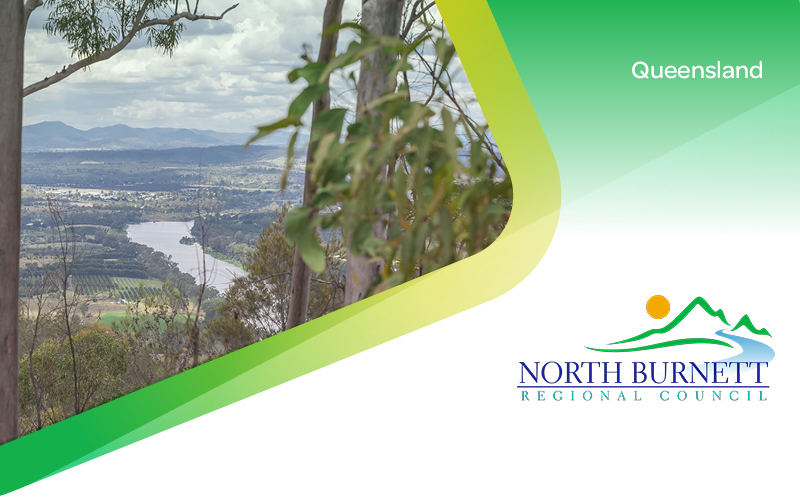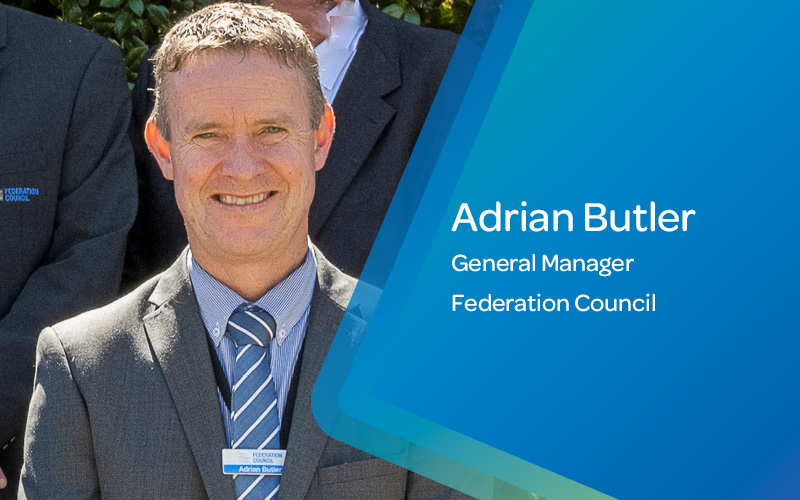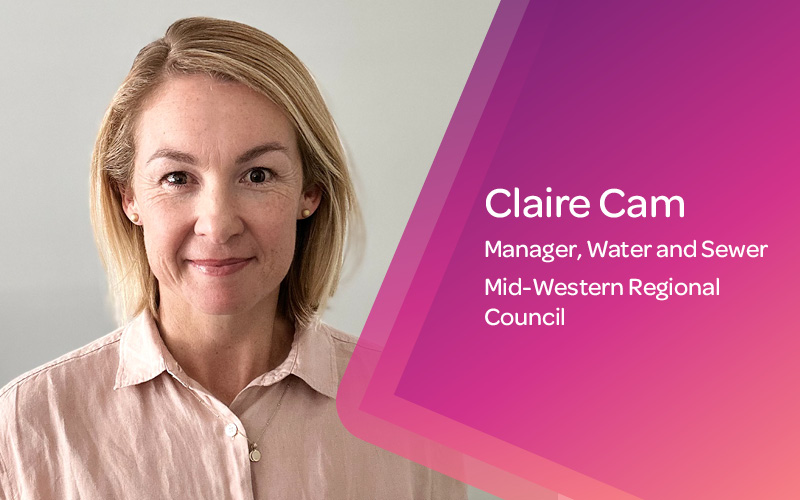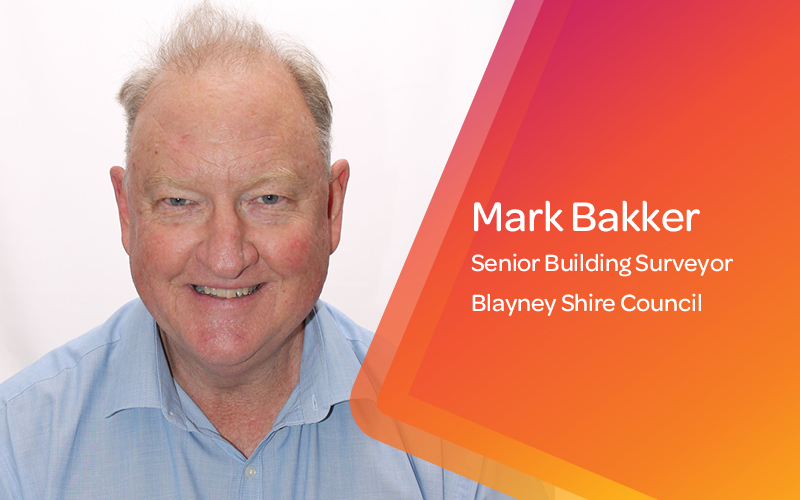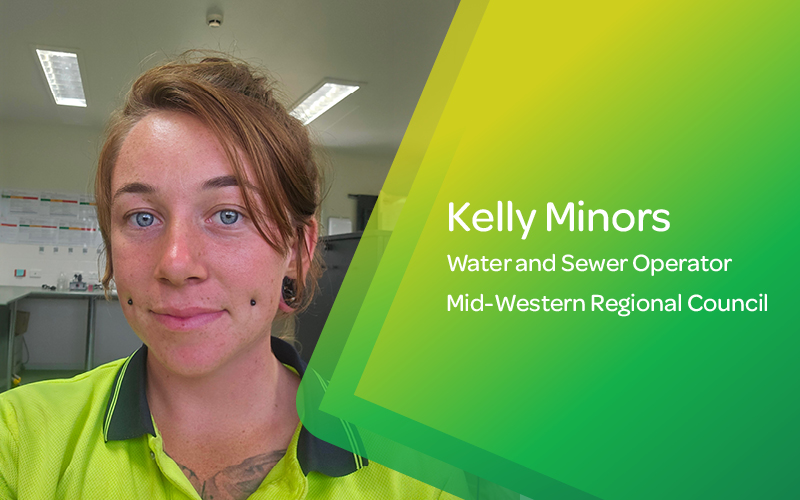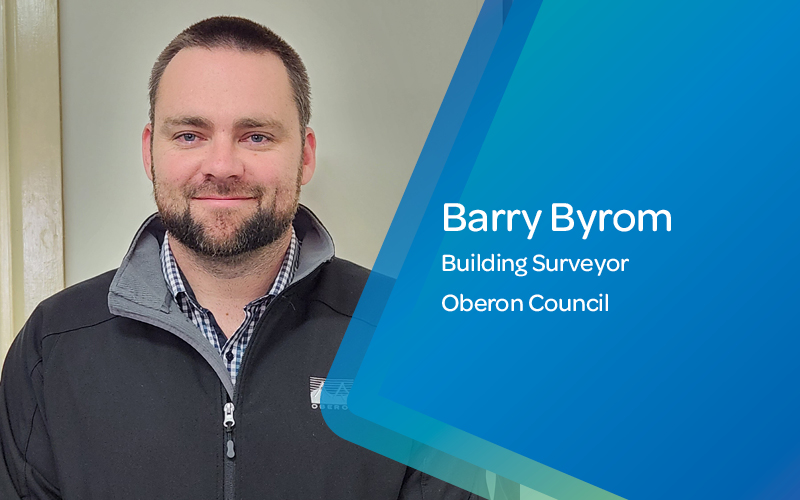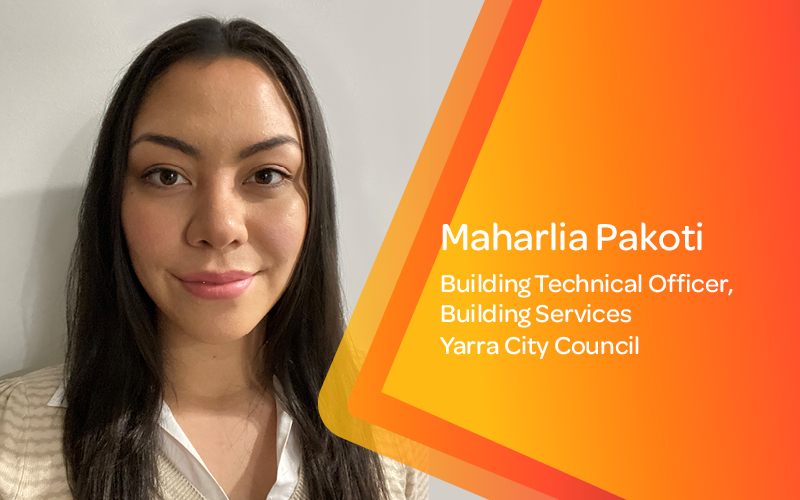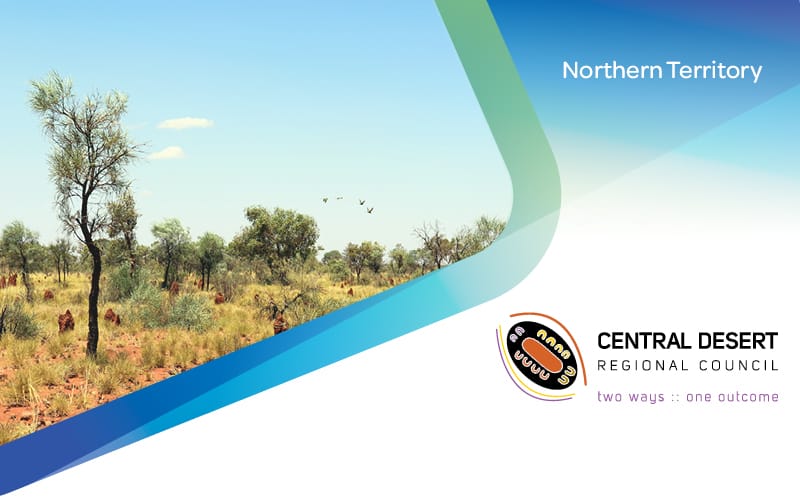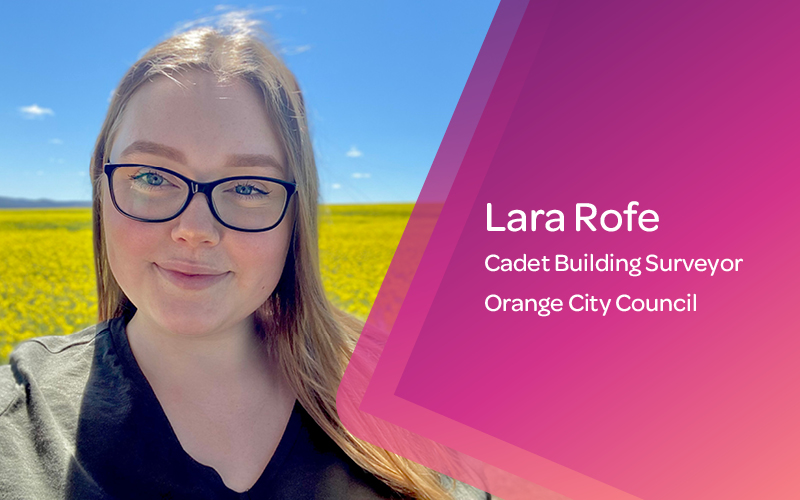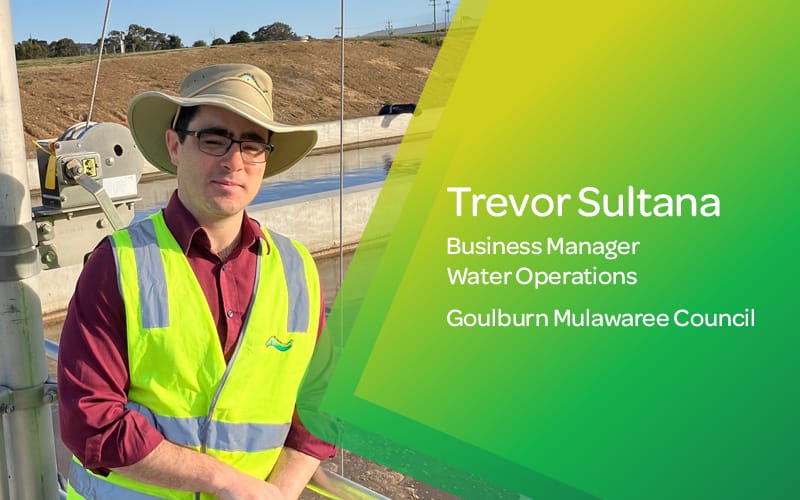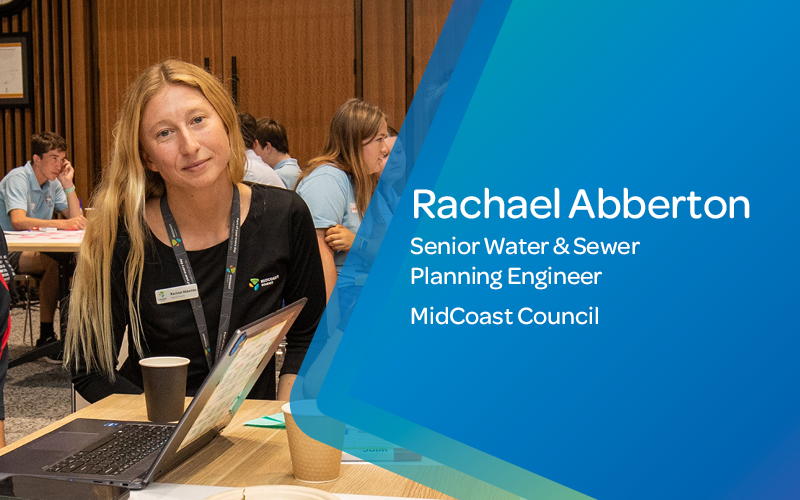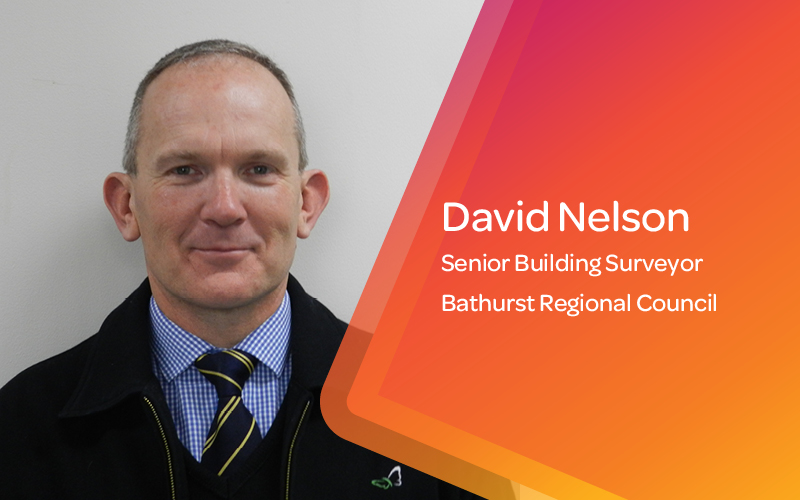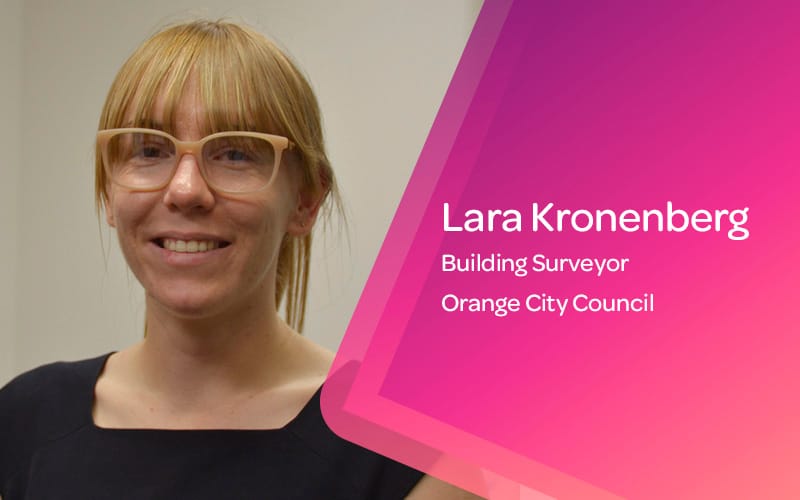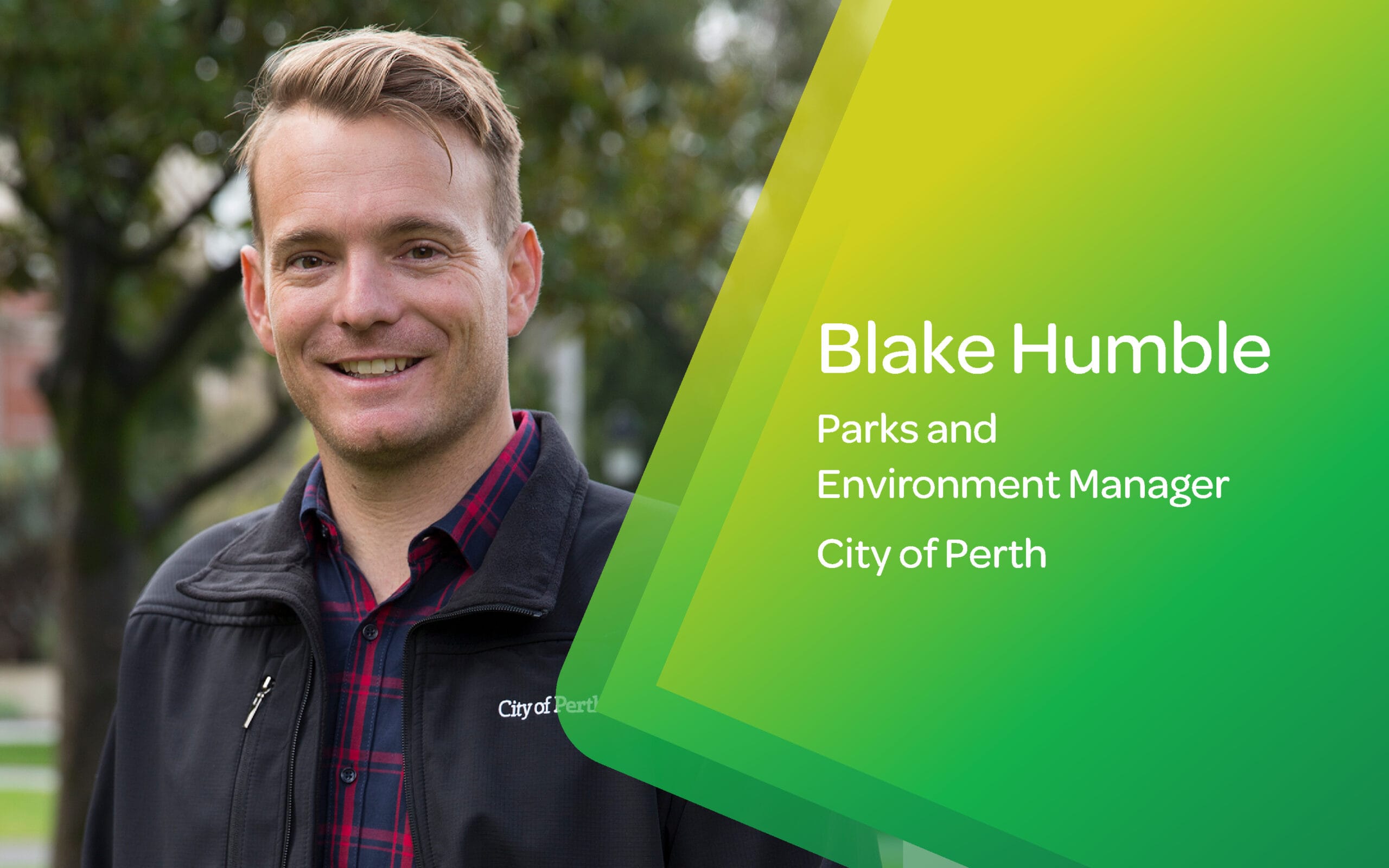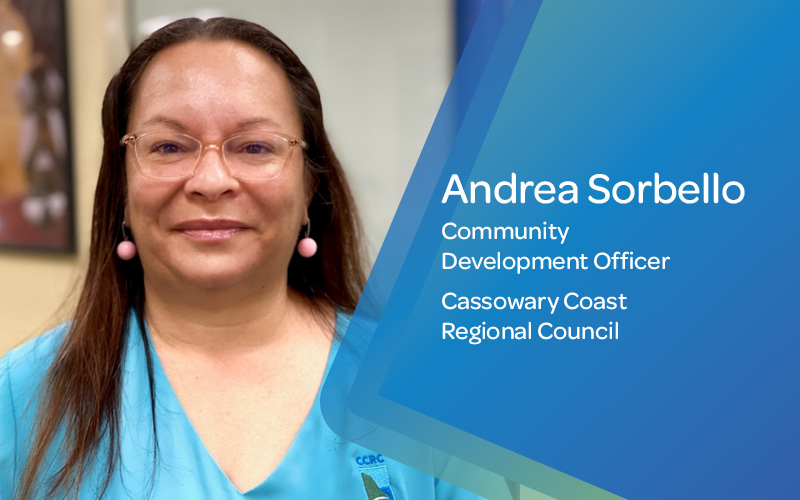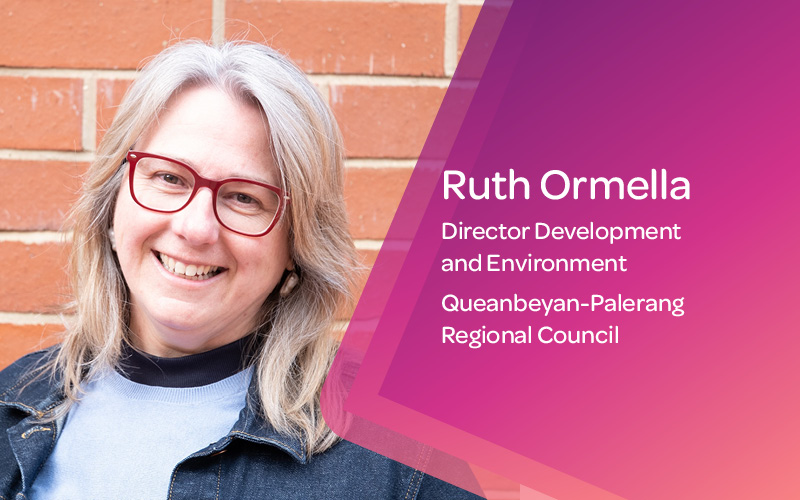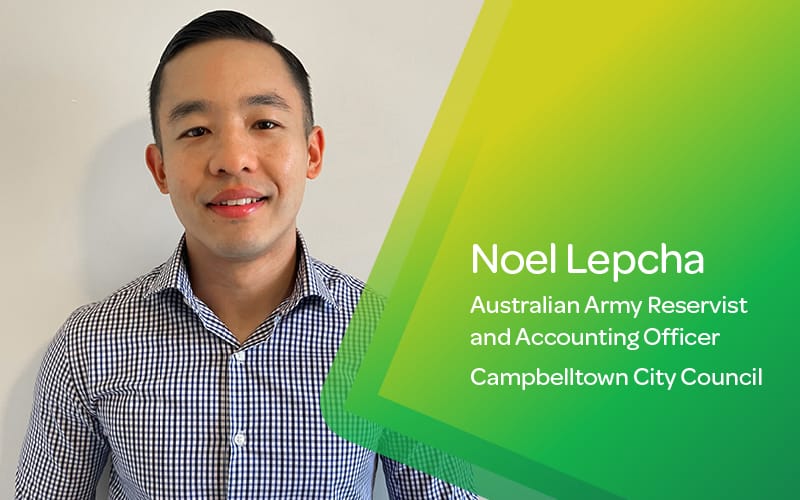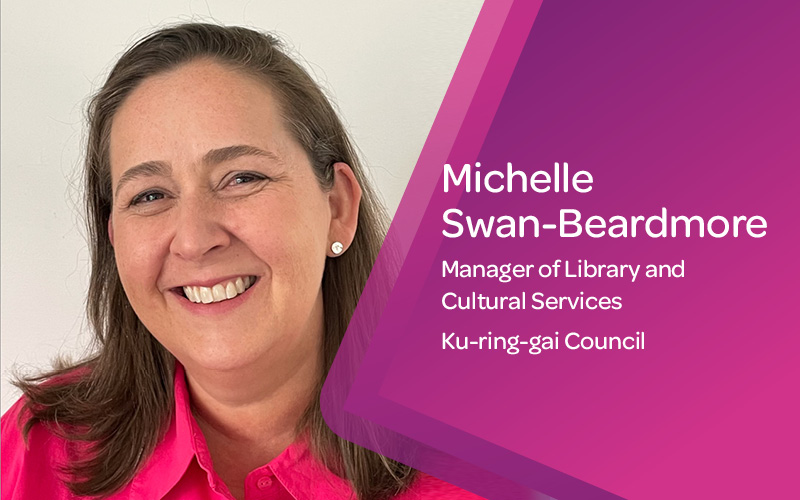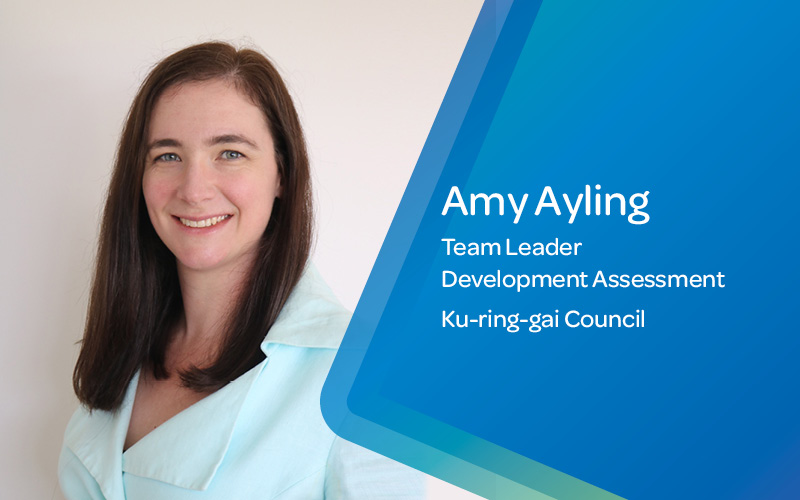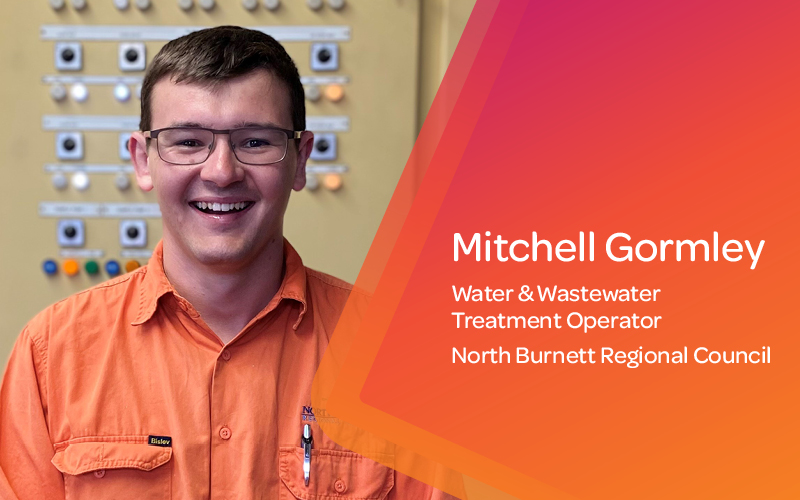
Introducing Mitchell Gormley, Water & Wastewater Treatment Operator at North Burnett Regional Council, and winner of the Water Industry Operators’ Association of Australia (WIOA) Young Operator of the Year award. Careers at Council recently met with Mitch to discover what led him to North Burnett Regional Council, and why he wholeheartedly recommends local government to anyone considering their next career move.
Q. Congratulations on being awarded WIOA Young Operator of the Year. Was it a big surprise?
A. Yes! I didn’t even know I had been nominated. My manager and my supervisor threw my name in the hat and didn’t tell me until about 2 weeks before the Conference . It was the first time I’d ever attended the WIOA conference. I remember saying to them that I appreciated them putting my name forward, but it’s not going to go far – I’m just a country boy from Queensland! And the next minute I heard my name being called out. It was a real honour just to be nominated, let alone taking out the award.
Q. Could you tell us a little bit about your education and career history, and what led you to local government?
A. I was born in Rockhampton, and my parents moved to Gayndah when I was two. I went to high school here, it’s a lovely little spot, about four hours from Brisbane and two hours from the coast. After school, I followed the traditional path and went to Uni to study Surveying for a couple of years and worked in the industry. I liked the work, but wasn’t so keen on the study aspect and how the University delivers that study, I prefer a more hands on approach.
Then, a water trainee position opened up at North Burnett Regional Council, back in my hometown. I applied and got lucky with the traineeship. I didn’t expect to fall in love with the industry, but I did. It’s been challenging every step of the way, which is what I wanted. I was motivated throughout my traineeship, completing my training at a pace I was comfortable with, but faster than my bosses expected.
In addition to my water and wastewater qualifications, I also pursued a Certificate 3 Water Industry Operations (Water Treatment) in my spare time to continue learning and expand my knowledge in the field. I was hired as a full-time operator in November. I’ve worked in various towns, managed small projects, and I’m just loving being a Water & Wastewater Operator.
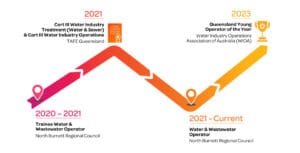
Q. What are your day-to-day tasks and responsibilities?
A. Our primary responsibility is ensuring the community has safe, local drinking water. While we have typical tasks, there’s no ‘typical’ day! Every day, all year round, we conduct standard water testing to ensure compliance. We send samples to Queensland Health weekly to check for chlorine levels, each day in our plant we test for manganese, iron minerals, chlorine and ph levels in the drinking water. We also conduct daily ph and dissolved oxygen tests in outgoing wastewater. We adjust our plants daily to maintain compliance, although automation is increasing operators intervention is still heavily required.
We operate two separate plants about 40 kilometres apart. In Gayndah, our small team of three handles everything from testing treatment plants, chemical management and repairing networks to installing and replacing hydrants and valves. We also manage sewer networks, clear blockages, and ensure the smooth operation of our plants.
Q. What do you enjoy most about your role?
A. What I enjoy most about my role is the incredible variety it offers, especially within such a small team. It’s a huge benefit. I get to oversee the entire process, from the river to the customer’s tap, and I’m involved in every aspect of the infrastructure and network. It’s a testament to our team’s talent that we can handle such a wide range of tasks, and I feel fortunate to be a part of it.
One highlight for me was the development of the $7 million water plant in Biggenden. From the initial bare dirt to the fully operational facility, I’ve watched every step of the process. It’s been truly remarkable to witness the transformation and the resulting higher quality water that we’re now able to deliver consistently.
Q. Is there a project that you are most proud of?
A. Yes definitely! I led a project involving the replacement of settling tubes at one of our remote sites, Mingo Crossing. After about five years in operation, the existing tubes had deteriorated beyond repair.
Collaborating with my whole team around me, I conducted research to identify suitable replacement materials. My supervisor brought back ideas of what could be viable as replacements from the WIOA conference, I then developed design and technical specifications for the new tubes, consulted with relevant companies for production, facilitated procurement, and assisted with the installation on site. Following installation, I oversaw testing and operations to ensure effectiveness.
This was the project that was included in my submission for the Young Operator of the Year award.
Q. What does success look like to you?
A. Success, to me, is when everything is running smoothly, and there are no issues to address. It’s about effectively managing any challenges as they arise, dealing with them promptly and efficiently. The ability to tackle problems as they come up is what brings the true challenge to the role, and that’s the part I find most rewarding.
Q. How have you found working in local government?
A. I’ve found working at North Burnett to be incredibly supportive – everyone wants you to learn and succeed. One aspect that surprised me when I started, was the extensive training opportunities available. From forklift operation to chlorine gas handling, traffic management, working at heights, confined spaces, and first aid – the ability to enhance our skills has been invaluable.
Currently, we’re engaged in Water industry worker training, not limited to our council but involving several others as well. Participating in this training allows us to visit different plants and observe their operations, providing valuable insights.
Additionally, events like WIOA bring industry professionals together to showcase the latest products and innovations, offering talks on industry changes and water operator experiences. It’s not just informative but also inspirational to meet and learn from others in the field.
Q. What do you think makes a successful water operator in local government?
A.I believe resilience is key to success as a water operator in local government. The role demands constant adaptation to change and the ability to overcome challenges as they arise. It’s essential to think quickly on your feet, accept constructive criticism, and be open to incorporating diverse ideas. Adaptability is crucial for navigating through problems effectively.
Q. What would you say to someone considering a role in the water industry in local government?
To anyone considering a role in the water industry in local government, I’d say keep an open mind. What may seem mundane on paper, like sampling and testing, can be surprisingly engaging once you’re in the thick of it. Personally, I never expected to enjoy chemistry as much as I do now. Exploring basic principles and witnessing chemical reactions firsthand has been surprisingly fascinating.
Working in this industry is incredibly rewarding. Every day, you’re producing a vital product that people often take for granted. Your work directly impacts entire communities. Whether you’re hands-on in the field or tackling challenges in the lab, the role offers diverse experiences and opportunities for growth. My advice? Dive in and give it a try. It’s not only fun but also filled with passionate individuals who truly care about their work.
Interested in learning more about a water career in local government? Click here to discover more. Alternatively, join the team at North Burnett Regional Council and search the jobs available now.
